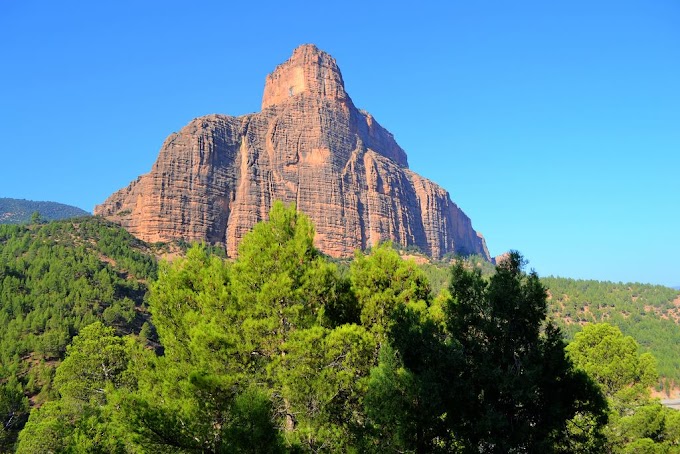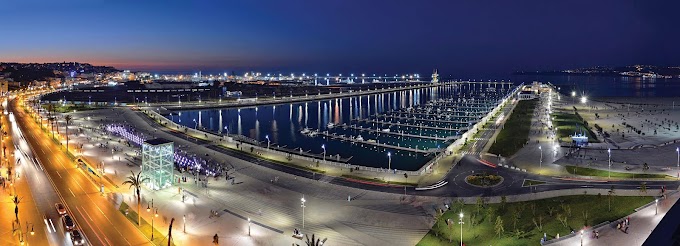Aït Benhaddou: Morocco’s Timeless Desert Fortress
Explore Aït Benhaddou, the iconic Moroccan ksar and UNESCO World Heritage Site. Discover its history, architecture, and film fame in this complete travel guide to one of Morocco’s most magical destinations.
Aït Benhaddou, Morocco desert village, UNESCO Morocco, ksar travel guide, Game of Thrones Morocco, Ouarzazate attractions
A Step Back in Time
Nestled between the High Atlas Mountains and the vast Sahara Desert lies Aït Benhaddou, a stunning mud-brick village that looks like it leapt out of a fairy tale—or a Hollywood epic. This UNESCO World Heritage Site is one of Morocco’s most visually captivating destinations, known for its ancient architecture, cinematic history, and desert charm.
Whether you're a history lover, photographer, or film fan, Aït Benhaddou is a must-see jewel of southern Morocco.
Where Is Aït Benhaddou?
Located in the Ounila Valley, just 30 kilometers from Ouarzazate, Aït Benhaddou is easily accessible from:
Marrakech via the Tizi n’Tichka Pass (~4 hours by car)
Sahara tours starting from Merzouga or Zagora
It sits along the ancient caravan route between the Sahara and Marrakech, once a key stop for merchants trading salt, gold, and slaves.
What Makes Aït Benhaddou Special?
1. Ksar Architecture
Aït Benhaddou is a ksar—a traditional fortified village made from rammed earth, adobe, and clay. Its tall defensive walls enclose:
Mudbrick homes stacked on terraces
Watchtowers for defense
Granaries and communal areas
The structures blend into the red earth, creating a magical effect at sunset. It’s a masterpiece of pre-Saharan architecture.
2. UNESCO World Heritage Status
In 1987, Aït Benhaddou was inscribed as a UNESCO World Heritage Site due to its:
Cultural and historical significance
Outstanding preservation of Moroccan earthen architecture
Continued local use and traditions
A few families still live inside the old ksar, maintaining its authenticity.
3. A Hollywood Favorite
Aït Benhaddou has served as a backdrop for many iconic films and series, including:
Gladiator (2000)
Lawrence of Arabia (1962)
The Mummy (1999)
Game of Thrones (as Yunkai)
Prince of Persia (2010)
Its dramatic silhouette makes it a favorite among location scouts.
What to Do in Aït Benhaddou
1. Explore the Ksar on Foot
Wander through its maze-like alleys, climb to the granary at the summit, and admire the panoramic views of the surrounding desert valley. Don’t forget your camera!
2. Visit a Local Family Home
Some homes are open to visitors—learn about traditional construction, see how adobe bricks are made, and enjoy mint tea with locals.
3. Browse Artisan Shops
Local artisans sell Berber jewelry, pottery, rugs, and paintings made with saffron and tea. Many use natural dyes and traditional methods.
4. Watch the Sunset
The ksar glows golden-orange as the sun sets—one of the most photogenic moments in Morocco.
5. Cross the Old Bridge or Riverbed
Depending on the season, you’ll cross a footbridge or dry riverbed to reach the ksar. The view from across the river is the classic postcard shot.
Where to Stay Near Aït Benhaddou
Most visitors stay in nearby Ouarzazate, but several charming accommodations are available right by the ksar:
Hotel / Guesthouse
Highlights
Riad Caravane
Stylish riad with desert views
Traditional decor, friendly hosts
Bagdad Café
Great food and pool
Dar Mouna
Panoramic ksar views from terrace
All options offer local cuisine and easy access to the site.
What to Eat in Aït Benhaddou
Enjoy dishes made with fresh local ingredients and Berber flair, such as:
Lamb tagine with prunes and almonds
Chicken with preserved lemons and olives
Couscous with seasonal vegetables
Desert-style tea with sage or thyme
Many riads offer rooftop dinners overlooking the ksar.
Best Time to Visit
Spring (March–May): Pleasant weather and wildflowers
Autumn (Sept–Nov): Mild temperatures and clear skies
Summer (June–August): Hot, but dry—best visited early morning or evening
Winter (Dec–Feb): Cooler with fewer tourists
Avoid midday visits in summer due to extreme heat.
Photography Tips
Golden Hour (sunset) offers the best lighting
Cross the river to capture the full ksar view
Use a wide-angle lens for the towers and rooftops
Ask locals before photographing people or homes
Travel Tips
Bring sun protection and water—shade is limited
Wear comfortable shoes for walking steep, uneven paths
Consider hiring a local guide for stories and context
Carry cash—cards aren’t widely accepted in shops





0 Comments